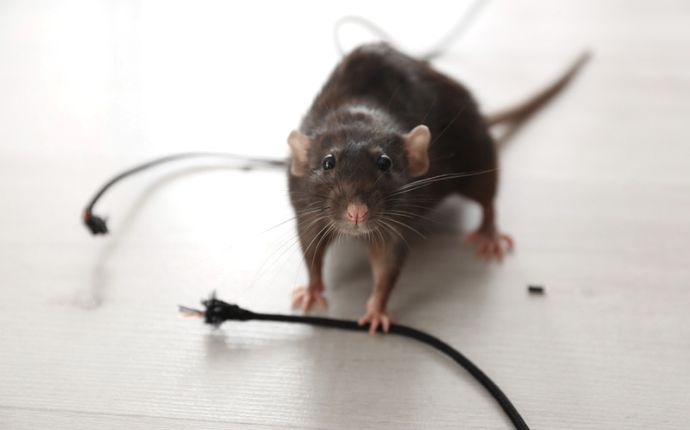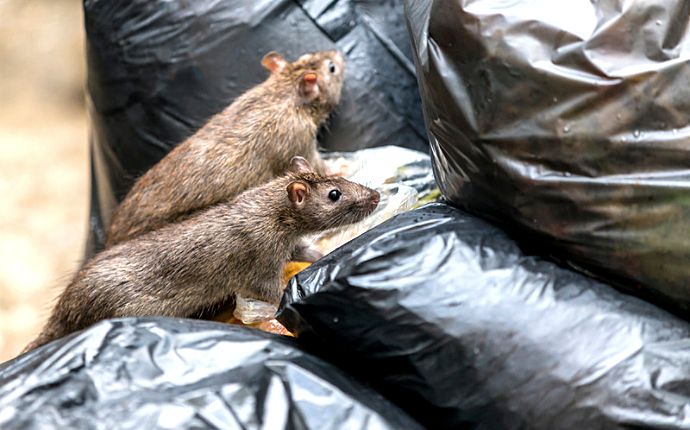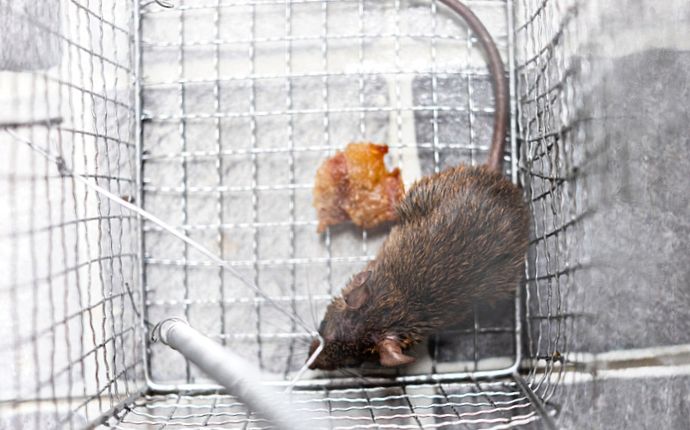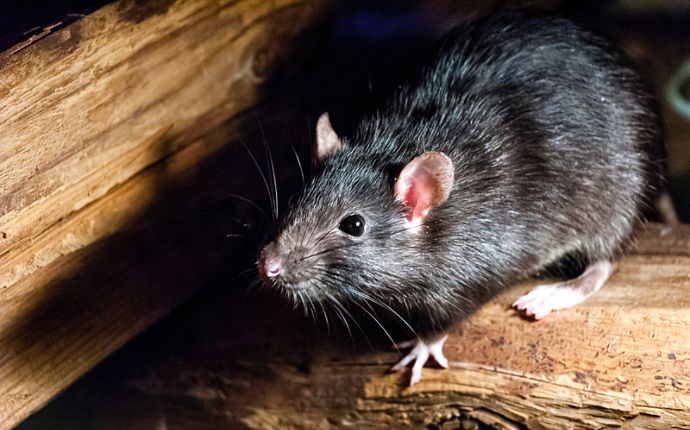Did you know that roof rats spend 90 percent of their life four feet or higher off of the ground? Roof rats, also called house rats and black rats, are impressive climbers that typically create their nests above ground level.
Not only is your roof above ground level, but it also may provide the food and water that roof rats need. Once roof rats access your roof or attic, they quickly become a significant problem.
Roof rats carry germs, bite when threatened, and can be difficult to get rid of, so it’s critical to learn all about them.
Roof Rat Identification
Roof rats are also called black rats, fruit rats, and house rats. These pests have bodies that are about six to eight inches long and have brown-black fur. They have large, distinctive ears along with big, black eyes and a thin, scaly tail.
Because roof rats make their nests above the ground, it’s not uncommon for them to create a home in your attic. They also nest in trees, shrubs, ivy, and other dense vegetation.
Roof rats are often called fruit rats due to their love of fruits, particularly citrus fruits, which also provide good hydration.
Roof rats also eat:
- Nuts
- Seeds
- Grains
- Vegetables
- Insects
- Pet food
- Tree bark
- Paper
- Beeswax
When a roof rat settles in your home, it’s likely to eat any kind of food it can gain access to.
Roof rats can begin to reproduce in just two months. A female can give birth to four to six litters each year of six to eight babies, so an infestation begins quickly. These animals breed year-round, and a male will often breed with several females.
Signs of a Roof Rat Infestation

Do you suspect a roof rat infestation in your home? Keep an eye out for these common signs:
- Noises including gnawing, scratching, and squeaking
- Scratches and gnaw marks on roof, eaves, electrical wires, and wood
- Rat droppings and urine trails
- Hollowed-out fruit and vegetables outdoors
- Rat sightings around outside property
- Foul odors
- Holes in food packages
Are Roof Rats a Problem?
Roof rats are more than just uninvited house guests. These rodents pose a serious risk to you and your family.
Health Risks from Roof Rats

Roof rats are unclean animals that carry and transmit a wide range of diseases to you, your family, and your pets. These diseases include hantavirus pulmonary syndrome, leptospirosis, rat-bite fever, tularemia, and the plague.
Roof rats can contaminate the food they touch, and they have also been known to bite when threatened.
Damage Caused by Roof Rats
In addition to the health risks they pose, these rats can also cause significant damage to your home and property.
Roof rats have teeth that never stop growing, so they must gnaw to grind them down. They may gnaw on electric wires, wood beams, pipes, and insulation. All these damages can cause serious damage and dangerous situations in your home.
Stinking Odor
Roof rats only live about one year, but if they die in your home, their bodies will release a very strong and unpleasant odor. Not only is this odor unwanted, but it can be harmful to humans and very irritating.
How to Get Rid of Roof Rats

Start by putting out baits and traps in your home. There are several types to choose from, including:
- Snap traps
- Electronic traps
- Glue traps
- Humane traps
Each of these will stop the rats from moving around and causing more damage or further reproducing. Not all of them will immediately kill the rats, though, and some are considered inhumane. You can also try using ultrasonic pest repellers, which emit high-frequency sounds that irritate small pests and keep them at bay.
And when in doubt, contact Romney Pest Control for expert assistance.
Say Goodbye to Your Roof Rat Problem Today!
The best ways to manage a roof rat problem are to maintain a clean home and eliminate potential food and water sources. However, sometimes you need expert help to protect your house.
Romney Pest Control has been servicing the San Antonio area for over ten years. We lend extensive expertise through commercial and residential pest control services. Call today for top-of-the-line roof rat treatments from our highly-trained professionals.




